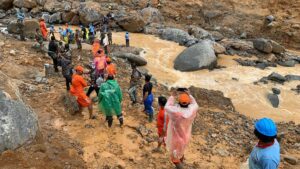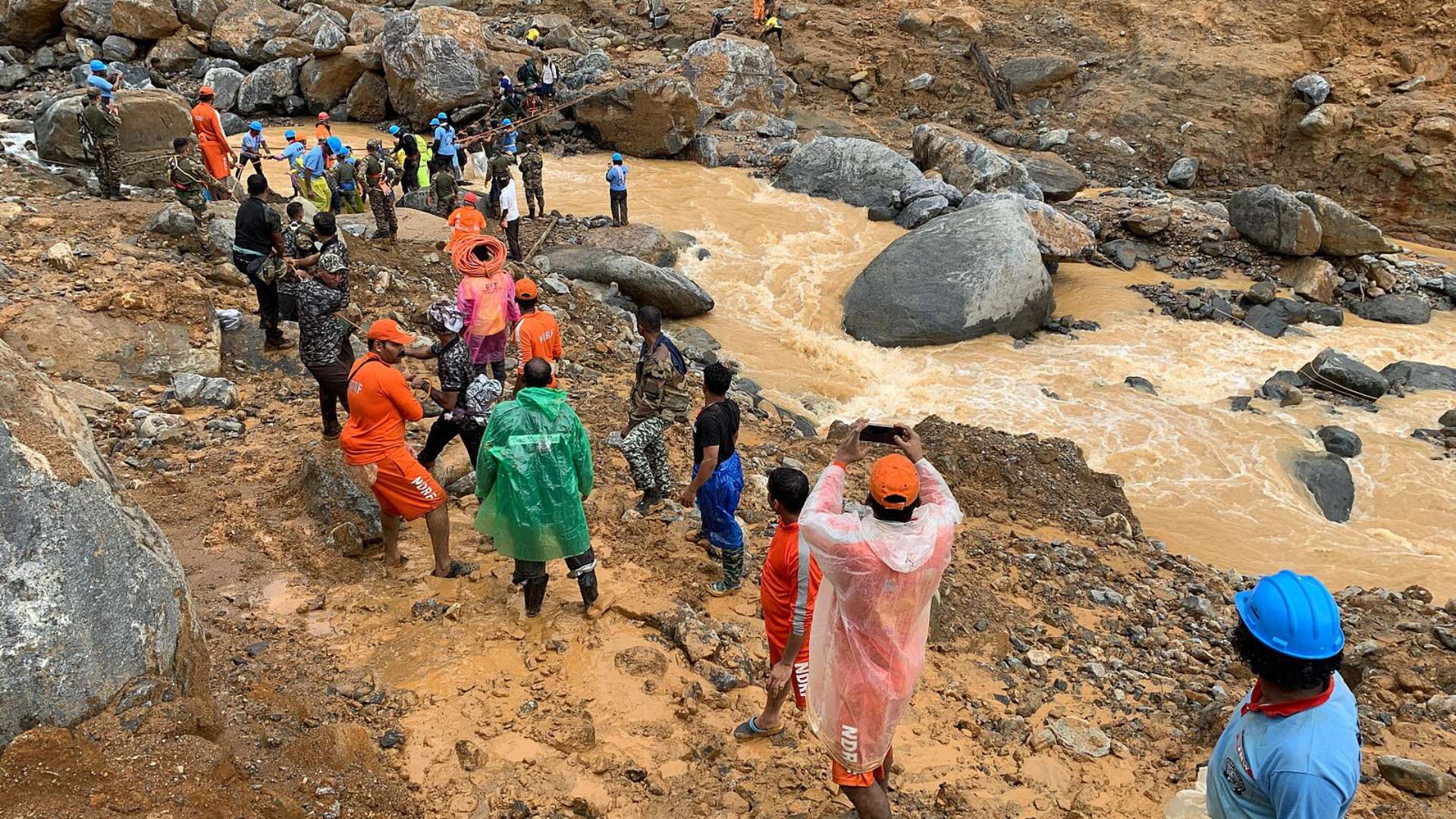 The women of Wayanad affected by the devastating 2024 landslide that scarred their lives and lands, have achieved a significant victory at the Kerala high court in their battle for loan relief. A bench headed by justices AK Jayasankaran Nambiar and Jobin Sebastian rapped the union government for what it called the “unfortunate” denial of loan relief to the aggrieved women. It also expressed disappointment at the unwillingness of banks to write off the loans. The ravaging Wayanad landslide was seen by independent experts and even by the United Nations as a destructive consequence of heavy rainfall driven by human made climate emergency.
The women of Wayanad affected by the devastating 2024 landslide that scarred their lives and lands, have achieved a significant victory at the Kerala high court in their battle for loan relief. A bench headed by justices AK Jayasankaran Nambiar and Jobin Sebastian rapped the union government for what it called the “unfortunate” denial of loan relief to the aggrieved women. It also expressed disappointment at the unwillingness of banks to write off the loans. The ravaging Wayanad landslide was seen by independent experts and even by the United Nations as a destructive consequence of heavy rainfall driven by human made climate emergency.
From the fields of Punjab to the swanky streets of Gurgaon, from farmers in Maharashtra to rural Bihar, from the slopes in Uttarakhand to the hills in Kerala – our newspapers and reels are flooded with news of landslides, cloud bursts and ever more frequent cyclones. Along with the human cost these human made climate disasters inflict on the people, each of them also has financial implications. Not just in terms of assets destroyed, crops lost or livelihoods impaired, but also in terms of the burden of loans.
The High Court in its order on the women’s writ petition reflects on the plight: “Having lost their lands, and their means of livelihood, in the devastating landslide, they are now being called upon to repay the loans availed by them for agricultural and related purposes when the very property that they had offered as collateral security while availing those loans has ceased to exist. This is nothing short of an affront to their dignity which has been recognised as an aspect of their fundamental right to life under Article 21 of the Constitution.”
In the early hours of July 30, 2024, Chooralmala and Mundakkai villages in the district of Wayanad in Kerala were hit by devastating landslides that claimed more than 250 lives and the villages were literally wiped off the face of the earth. Maju Varghese writes that “Banks even attempted to collect EMIs from relief camps, prompting intervention from the state government.” With the involvement of civil society who took the matter to the district credit committees and the state government, a legitimate demand for loan waiver was raised. The Kerala government responded and thereby the Kerala Bank declared a loan write off for those affected.
The issue extends far beyond Kerala. The High Court judgement recognised the banks’ and financial institutions’ accountability to step in with relief measures in the face of climate disasters. Not only did it stay loan recovery, it went on to order that banks file counter affidavits explaining whether they are willing to waive, the loans availed by the landslide victims in Wayanad, and if not, what is their justification.
This has significance at a time when climate extreme events are having disastrous consequences on the lives, livelihoods and assets of the marginalised and the vulnerable. Banking in such a context ought to be responsive and sensitive to such circumstances instead of a business as usual approach. Thomas Franco, the former General Secretary of All India Bank Officer’s Confederation, in fact writes, “that banks should be generous in writing off loans of people in such disasters.” It is high time that a public discourse is initiated regarding the financial aspects of the climate crisis and the measures that need to be factored in our financial landscape to adequately respond, adopt and mitigate.
This article was originally published in Bank Beats (AIBOC Magazine), and you can read here.

